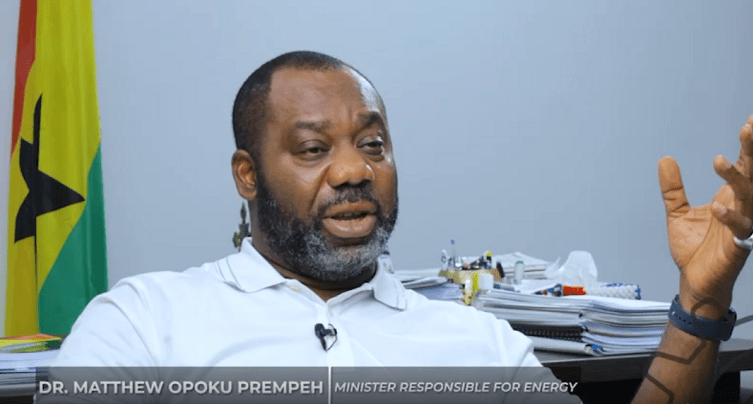Ghana is grappling with significant challenges in its energy sector, prompting the government to propose a set of reforms as part of its International Monetary Fund (IMF) programme.
According to the IMF, the sector has been plagued by below-cost-recovery tariffs, substantial distribution losses, and excess capacity, resulting in significant financial burdens for the central government. Since 2019, these issues have led to transfers equivalent to two percent of GDP annually and mounting payables to independent power producers (IPPs) and fuel suppliers.
To address these pressing issues, the Ghanaian authorities have designed an energy sector reform programme that aims to revamp the entire sector. The programme, developed with the assistance of the World Bank, focuses on various aspects, including renegotiating Purchasing Power Agreements (PPAs) to alleviate take-or-pay liabilities, tariff adjustments, improving the operational performance of energy state-owned enterprises (SOEs), reforming subsidies, reducing distribution losses, and enhancing collections.
Implementation of these measures is expected to be a challenging and time-consuming process.
In an effort to bridge the financial gap, the IMF says the Public Utilities Regulatory Commission (PURC) recently raised electricity tariffs by nearly 30 percent, with cumulative increases reaching 57 percent since mid-2022.
The additional quarterly tariff adjustments planned for 2023 aim to compensate for exchange rate and price fluctuations and bring tariffs closer to cost-recovery levels. However, it remains uncertain whether these adjustments will be sufficient to alleviate the financial strain on the sector.
The government acknowledges the need to protect vulnerable households from the impact of tariff adjustments. They plan to redefine lifeline tariffs to better target low-volume users and the poorest households.
A mapping exercise will also be undertaken to assess the effectiveness of the existing cash transfer program in supporting economically disadvantaged households with electricity access. The goal is to calibrate the program more effectively, but there are concerns about its ability to adequately address the needs of the most vulnerable.
Despite the proposed reforms, there are concerns about the transparency and sustainability of the energy sector. Previous budgets have been criticized for relying on overly optimistic revenue projections and unrealistic spending cuts.
While the 2023 budget aims to address these issues by adopting more realistic assumptions, doubts remain about the government's ability to fully implement the reforms and ensure transparency in the sector.
The success of the reform program hinges on effective execution and collaboration among various stakeholders. However, given the complex nature of the challenges faced by Ghana's energy sector, achieving meaningful progress may prove to be an uphill battle.
Furthermore, the projected reduction in the sector's financial shortfall appears modest, and doubts persist about the government's ability to create sufficient fiscal space for priority spending.
While Ghana's efforts to reform the energy sector are commendable, the road ahead is fraught with uncertainties.
The true test lies in the implementation and effectiveness of these measures, as well as the government's commitment to transparency and long-term sustainability.
Only time will tell whether these proposed reforms can truly address the deep-rooted issues and pave the way for a more stable and resilient energy sector in Ghana.
Latest Stories
-
Joy FM Prayer Summit for Peace ends in electrifying worship and prayer
5 hours -
The Conscience of Leadership: A call to President Akufo-Addo on Ghana’s environmental devastation
6 hours -
Ghanaian youth unaware of their right to hold politicians accountable – Youth Bridge Foundation
7 hours -
Judge delays Trump sentencing for a third time
7 hours -
2024 WAFCON: Ghana drawn against defending champions South Africa in Group C
7 hours -
Photos from DW-JoyNews street debate on ‘galamsey’
8 hours -
Mimmy Yeboah: Blending heritage with global sophistication, confidence redefined through couture
8 hours -
100 Most Influential People Awards 2024: Brain Hill International School’s Director Mary Anane Awuku honoured
9 hours -
Akufo-Addo commissions 97-km Tema-Mpakadan railway line
9 hours -
Majority requests recall of Parliament
9 hours -
Kanzlsperger and Professor Quartey support WAFA with medical Donation
9 hours -
Gideon Boako donates 10 industrial sewing machines to Yamfo Technical Institute
9 hours -
‘Golden Boy’ Abdul Karim Razak honored at WAFU-B general assembly
10 hours -
Buipewura Jinapor secures Vice Presidential position in National House of Chiefs with record votes
10 hours -
2024 election: I want results to come out like ‘milk and honey’ – Toobu
10 hours

